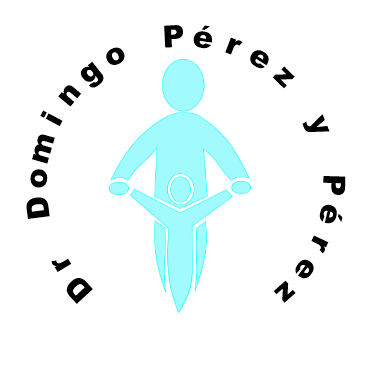Ethical implications of regenerative medicine in orthopedics: an empirical study with surgeons and scientists in the field.
Fuente
Este artículo es originalmente publicado en:
https://www.ncbi.nlm.nih.gov/pubmed/24184644
http://www.thespinejournalonline.com/article/S1529-9430(13)01611-2/fulltext
De:
Niemansburg SL 1 , van Delden JJ 2 , Oner FC 3 , Dhert WJ 3 , Bredenoord AL 2
Spine J. 2014 Jun 1; 14 (6): 1029-1035. doi: 10.1016 / j.spinee.2013.10.016. Epub 2013 Nov 1.
Todos los derechos reservados para:
Copyright © 2014 Elsevier Inc. All rights reserved.
Abstract
BACKGROUND CONTEXT:
Regenerative medicine (RM) interventions, such as (stem) cell transplantation, scaffolds, gene transfer, and tissue engineering, are likely to change the field of orthopedics considerably. These strategies will significantly differ from treatments in current orthopedic practice, as they treat the underlying cause of disease and intervene at a biological level, preferably in an earlier stage. Whereas most of the RM interventions for orthopedics are still in the preclinical phase of research, the number of clinical studies is expected to increase rapidly in the future. The debate about the challenging scientific and ethical issues of translating these innovative interventions into (early) clinical studies is developing. However, no empirical studies that have systematically described the attitudes, opinions, and experiences of experts in the field of orthopedic RM concerning these challenges exist.
PURPOSE:
The aim of this study was to identify ethical issues that experts in the area of RM for musculoskeletal disorders consider to be relevant to address so as to properly translate RM interventions into (early) clinical studies.
STUDY DESIGN/SETTING:
In-depth qualitative interviews were conducted with 36 experts in the field, mainly spine surgeons and musculoskeletal scientists from The Netherlands and the United Kingdom.
DISCUSSION:
The overall attitude toward the development of RM was positive, especially because current surgical treatments for spine disorders lack satisfactory effectiveness. However, efforts should be taken to adequately address the ethical and scientific issues in the translation of RM interventions into clinical research. This is required to prevent unnecessary risks to study participants, to prevent exposure of future patients to useless clinical applications, as well as to prevent this young field from developing a negative reputation. Not only will the orthopedic RM field benefit from ethically and scientifically sound clinical studies, but the rise of RM also provides an opportunity to stimulate evidence-based practice in orthopedics and address hype- and profit-driven practices in orthopedics.
Abstracto
ANTECEDENTES CONTEXTO:
Medicina regenerativa(RM) intervenciones , tales como el trasplante de células (madre), andamios, la transferencia de genes, y la ingeniería de tejidos, es probable que cambie el campo de la ortopedia considerablemente. Estas estrategias difieren significativamente de los tratamientos de la corriente ortopédica práctica, ya que el tratamiento de la causa subyacente de la enfermedad e intervienen a nivel biológico, preferiblemente en una etapa anterior. Mientras que la mayoría de las intervenciones RM para ortopedia se encuentran todavía en la fase preclínica de la investigación, se espera que el número de estudios clínicos para aumentar rápidamente en el futuro. El debate sobre las difíciles cuestiones científicas y éticas de la traducción de estas intervenciones innovadoras en (temprano) los estudios clínicos se está desarrollando. Sin embargo, no existen estudios empíricos que tienen describen sistemáticamente las actitudes, opiniones y experiencias de los expertos en el campo de la ortopedia RM respecto a estos desafíos existen.
PROPÓSITO:
El objetivo de este estudio fue identificar los problemas éticos que los expertos en el área de la RM para los trastornos músculo-esqueléticos consideren pertinentes para abordar el fin de traducir correctamente las intervenciones en RM (temprano) los estudios clínicos.
DISEÑO DEL ESTUDIO / AJUSTE:
En profundidad se llevaron a cabo entrevistas cualitativas con 36 expertos en el campo, principalmente los cirujanos de columna y científicos del aparato locomotor de los Países Bajos y el Reino Unido.
DISCUSIÓN:
La actitud general hacia el desarrollo de RM fue positivo, sobre todo porque los tratamientos quirúrgicos actuales para trastornos de la columna carecen de eficacia satisfactoria. Sin embargo, se deben realizar esfuerzos para abordar adecuadamente las cuestiones éticas y científicas en la traducción de las intervenciones de RM en la investigación clínica. Esto es necesario para evitar riesgos innecesarios a los participantes del estudio, para evitar la exposición de los pacientes a las futuras aplicaciones clínicas inútiles, así como para evitar que este joven campo del desarrollo de una reputación negativa. No sólo el beneficio campo ortopédico de la MR a partir de estudios clínicos ética y científicamente válidos, pero el aumento de la RM también proporciona una oportunidad para estimular la práctica basada en la evidencia en ortopedia y conducir a buenos tiempos las prácticas y ganancias en ortopedia
.
Copyright © 2014 Elsevier Inc. All rights reserved.
KEYWORDS:
Empirical research; Musculoskeletal disorders; Orthopedics; Regenerative medicine; Stem cells; Translation
- PMID: 24184644 DOI: 10.1016/j.spinee.2013.10.016
- [Indexed for MEDLINE]

